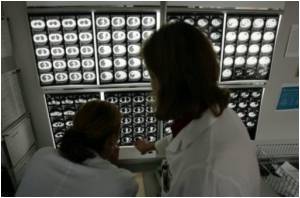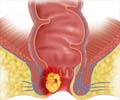UT Southwestern Medical Center researchers have discovered a protein that guides blood vessel development

"What we've found is really the first factor that is important in all blood vessels for inner channel formation and tubulogenesis, i.e., the transformation of something that looks like a rope into something that looks like a garden hose," said Cleaver.
A Rasip1-blocking drug conceivably could fight cancer on two fronts: by starving the cancerous cells and by cutting off their transport routes, said Cleaver.
Rasip1 is the first blood vessel-specific regulator of molecular switches called GTPases, she said. The protein appears to be active only in the endothelium, the layer of cells that line the blood vessels, and is not found in the smooth muscle cells that make up the outside of the vessels.
The UT Southwestern scientists also discovered that Rasip1 and a protein binding partner are both required for blood vessels to form channels through which blood can flow, she said.
"Although this is still a mouse study, we feel that future studies of Rasip1 and the molecular processes under its control hold great promise to provide tools and models for advancing clinical therapies aimed at blocking vessel formation in tumors," she added.
Advertisement
Source-ANI














